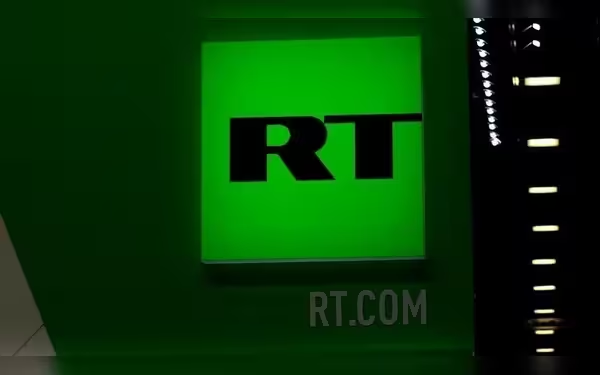Saturday, November 16, 2024 03:18 PM
US Imposes Sanctions on RT for Cyber Influence Operations
- US sanctions target RT for covert cyber operations.
- RT accused of influencing public opinion globally.
- Importance of media literacy emphasized amid misinformation.
 Image Credits: tribune.com.pk
Image Credits: tribune.com.pkThe US has imposed new sanctions on RT for alleged covert cyber influence operations, highlighting the need for media literacy in combating misinformation.
The recent announcement by the United States regarding new sanctions on the Russian state media outlet RT has raised significant concerns about the ongoing battle against misinformation and cyber influence. This move comes as part of a broader strategy to counteract what the US government describes as covert cyber intelligence operations that RT has allegedly been conducting across various regions, including Europe, Africa, and both North and South America.
According to US Secretary of State Antony Blinken, the sanctions are a response to new information obtained from RT employees. Blinken stated that RT is not just a media outlet but has developed cyber capabilities that allow it to engage in “covert information influence operations and military procurement.” This revelation highlights the complex nature of modern media, where information can be weaponized to sway public opinion and influence political landscapes.
The implications of these sanctions are far-reaching. By targeting RT, the US aims to send a clear message that it will not tolerate foreign interference in its democratic processes or those of its allies. The sanctions are expected to limit RT's ability to operate effectively, potentially curtailing its reach and influence in the global media landscape.
As the world becomes increasingly interconnected, the lines between information and misinformation blur. The actions taken by the US against RT serve as a reminder of the importance of media literacy and critical thinking in today’s society. Citizens must be vigilant and discerning consumers of information, especially in an age where digital platforms can amplify false narratives.
The US sanctions against RT underscore a growing recognition of the threats posed by state-sponsored media operations. As nations grapple with the challenges of cybersecurity and information warfare, it is crucial for individuals to stay informed and engaged. Understanding the motivations behind media narratives can empower citizens to make informed decisions and contribute to a more transparent and accountable media environment.













